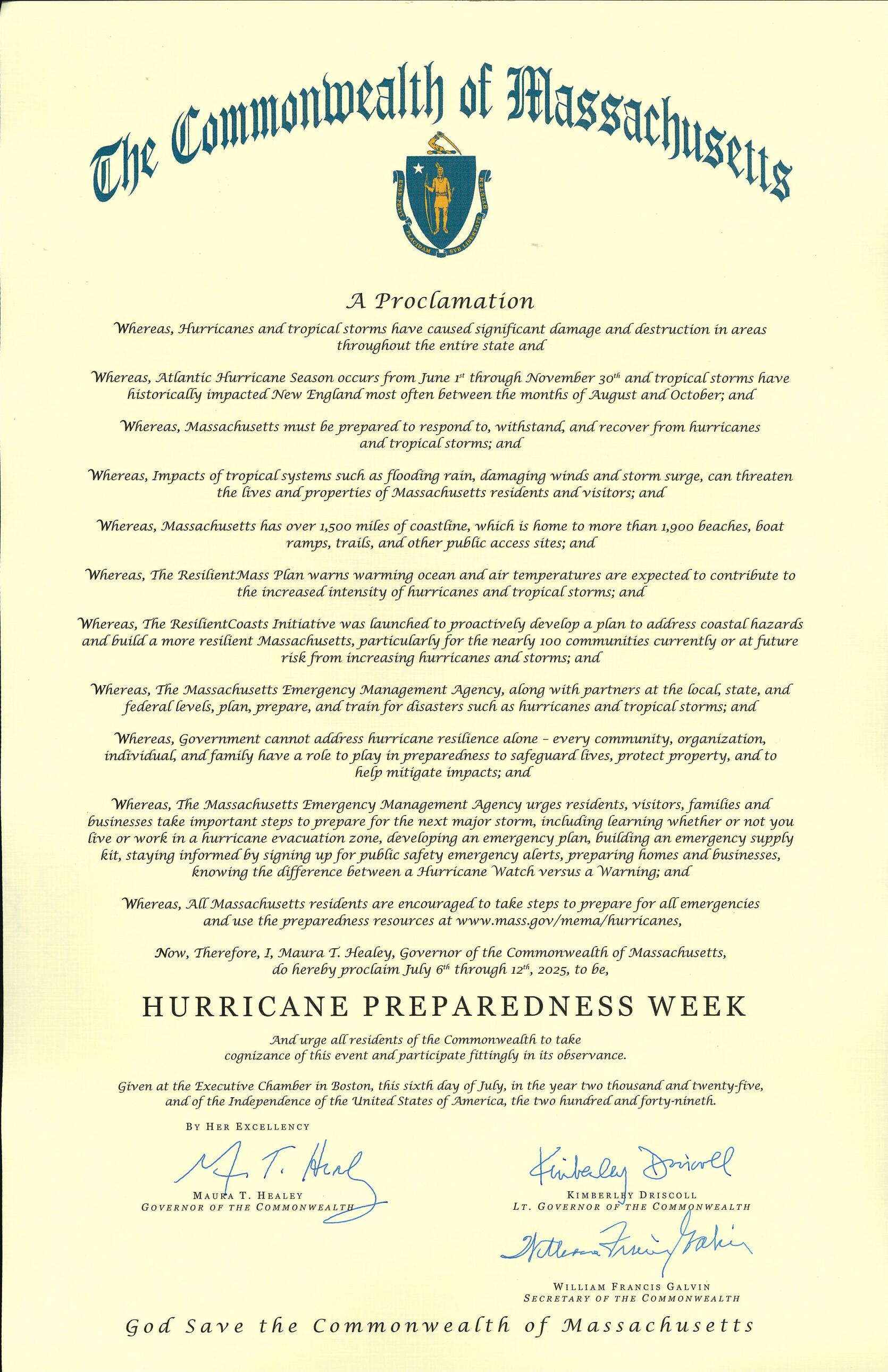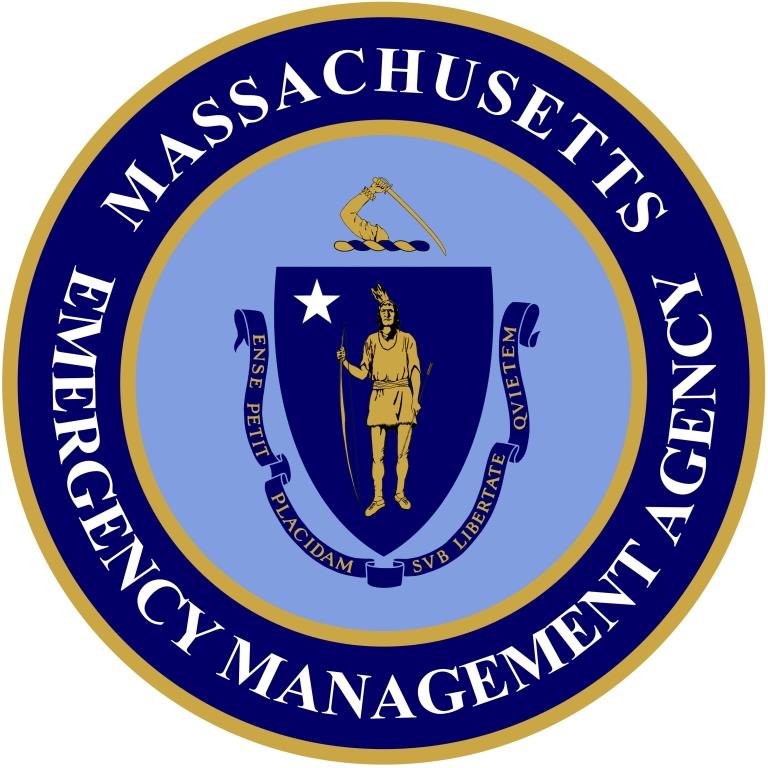- Massachusetts Emergency Management Agency
Media Contact
Robert Burgess, Communications and Digital Media Specialist

Framingham — Governor Maura Healey signed a proclamation declaring the week of July 6 to July 12, 2025, as "Hurricane Preparedness Week," to emphasize the importance of planning and preparing for hurricanes and tropical systems, which most often impact New England during the months of August and September.
During the week-long initiative, the Massachusetts Emergency Management Agency (MEMA) will focus on practical steps and informational resources to help individuals, families, businesses and municipalities protect life and property before, during, and after a tropical storm or hurricane.
“With tropical storms becoming more frequent and intense, I encourage everyone living in or visiting Massachusetts to use Hurricane Preparedness Week to make the plans necessary to stay safe,” said Governor Healey. “Last year’s hurricane season was devastating to parts of the southeast, and Hurricane Helene demonstrated how hurricanes can have severe impacts far from coastal areas.”
Atlantic Hurricane Season runs from June 1 to November 30 each year. The National Oceanic and Atmospheric Administration (NOAA) forecasters at the Climate Prediction Center anticipate an above-normal 2025 Atlantic Hurricane Season with a range of 13-19 named storms. Last year’s Atlantic hurricane season saw above-average activity with 18 named storms, according to NOAA.
“Both inland and coastal communities need to prepare for peak hurricane season,” said Lieutenant Governor Kim Driscoll. “Tropical storms can bring dangerous winds and flooding anywhere from Provincetown to Pittsfield.”
“Even though hurricanes don’t often make landfall in New England, the remnants of these storms can still cause catastrophic damage to property and put people’s lives at risk,” said Public Safety and Security Secretary Terrence Reidy. “You don’t want to be caught off-guard by an approaching tropical storm, which is why now is the time to prepare.”
In advance of peak hurricane season, MEMA developed and published online hurricane safety tips and resources and distributed a multilingual hurricane preparedness toolkit to Emergency Management Directors throughout Massachusetts to reach all individuals, including underserved and vulnerable populations. MEMA has also partnered with MassDOT and several regional transit authorities to place hurricane preparedness messaging on digital billboards and buses. MEMA continues to address hurricane preparedness, response, and recovery efforts through numerous coordination meetings, trainings and exercises, including annual training for local officials on Hurrevac – an online tool that assists emergency managers with evacuation timing, decision, and technical support.
“Hurricane Preparedness Week is the perfect time to take simple, affordable steps to keep your household safe,” said MEMA Director Dawn Brantley. “Start with what you have—create a basic emergency plan that includes everyone's needs and build an emergency kit using low-cost items you can gather over time. Being prepared doesn’t have to be expensive, but it can make all the difference.”
How residents and visitors can prepare:
Know Your Evacuation Zone – Visit www.mass.gov/knowyourzone to learn if you live or work in a hurricane evacuation zone. If you live in an area that may flood and may need assistance evacuating, plan with family, neighbors, and friends who may be able to assist, and contact your local public safety officials to make them aware of your needs.
Make an Emergency Plan – A plan should address how your family would communicate, evacuate, and shelter in place if needed. Be sure to account for the needs of all your family members, including seniors, children, individuals with disabilities, and pets: https://www.mass.gov/info-details/make-a-family-emergency-plan. If you receive medical treatment or home health care services, work with your medical provider to determine how to maintain care and service if you are unable to leave your home or have to evacuate.
Build an Emergency Kit – Build an emergency kit that will sustain your household for three to five days without power. For tips on what to include, visit https://www.mass.gov/info-details/build-an-emergency-kit
Stay Informed – Every family should have multiple methods for receiving emergency alerts and is encouraged to reach out to their local officials for preparedness and emergency information specific to their community, including available local emergency notification systems. The Commonwealth’s 2-1-1 hotline is available 24x7 for non-emergency assistance and is available with translation in more than 150 languages and can be accessed via video relay services. To learn more about additional ways to receive alerts and information, including the Emergency Alert System, Wireless Emergency Alerts, NOAA Weather Radio, and social and traditional news media, visit: www.mass.gov/info-details/be-informed-and-receive-emergency-alerts
MEMA will share preparedness and safety information throughout hurricane season. For more information, including interactive evacuation zone maps, multi-lingual social media toolkits and flyers, preparedness tips, videos, and more, visit MEMA’s Hurricane Season Preparedness webpage.
###
